第145章 Chapter 11(1)
About Purity Some persons raise a question whether the social feeling is contained in the nature of man; and yet I think that these same persons would have no doubt that love of purity is certainly contained in it, and that, if man is distinguished from other animals by anything, he is distinguished by this. When, then, we see any other animal cleaning itself, we are accustomed to speak of the act with surprise, and to add that the animal is acting like a man: and, on the other hand, if a man blames an animal for being dirty, straightway as if we were making an excuse for it, we say that of course the animal is not a human creature. So we suppose that there is something superior in man, and that we first receive it from the Gods. For since the Gods by their nature are pure and free from corruption, so far as men approach them by reason, so far do they cling to purity and to a love of purity. But since it is impossible that man's nature can be altogether pure being mixed of such materials, reason is applied, as far as it is possible, and reason endeavours to make human nature love The first, then, and highest purity is that which is in the soul; and we say the same of impurity. Now you could not discover the impurity of the soul as you could discover that of the body: but as to the soul, what else could you find in it than that which makes it filthy in respect to the acts which are her own? Now the acts of the soul are movement toward an object or movement from it, desire, aversion, preparation, design, assent. What, then, is it which in these acts makes the soul filthy and impure? Nothing else than her own bad judgements. Consequently, the impurity of the soul is the soul's bad opinions; and the purification of the soul is the planting in it of proper opinions; and the soul is pure which has proper opinions, for the soul alone in her own acts is free from perturbation and pollution.
Now we ought to work at something like this in the body also, as far as we can. It was impossible for the defluxions of the nose not to run when man has such a mixture in his body. For this reason, nature has made hands and the nostrils themselves as channels for carrying off the humours.
If, then, a man sucks up the defluxions, I say that he is not doing the act of a man. It was impossible for a man's feet not to be made muddy and not be soiled at all when he passes through dirty places. For this reason, nature has made water and hands. It was impossible that some impurity should not remain in the teeth from eating: for this reason, she says, wash the teeth. Why? In order that you may be a man and not a wild beast or a hog. It was impossible that from the sweat and the pressing of the clothes there should not remain some impurity about the body which requires to be cleaned away. For this reason water, oil, hands, towels, scrapers, nitre, sometimes all other kinds of means are necessary for cleaning the body. You do not act so: but the smith will take off the rust from the iron, and be will have tools prepared for this purpose, and you yourself wash the platter when you are going to eat, if you are not completely impure and dirty: but will you not wash the body nor make it clean? "Why?" he replies.
I will tell you again; in the first place, that you may do the acts of a man; then, that you may not be disagreeable to those with whom you associate. You do something of this kind even in this matter, and you do not perceive it: you think that you deserve to stink. Let it be so: deserve to stink. Do you think that also those who sit by you, those who recline at table with you, that those who kiss you deserve the same? Either go into a desert, where you deserve to go, or live by yourself, and smell yourself.
For it is just that you alone should enjoy your own impurity. But when you are in a city, to behave so inconsiderately and foolishly, to what character do you think that it belongs? If nature had entrusted to you a horse, would you have overlooked and neglected him? And now think that you have been intrusted with your own body as with a horse; wash it, wipe it, take care that no man turns away from it, that no one gets out of the way for it. But who does not get out of the way of a dirty man, of a stinking man, of a man whose skin is foul, more than he does out of the way of a man who is daubed with muck? That smell is from without, it is put upon him; but the other smell is from want of care, from within, and in a manner from a body in putrefaction.